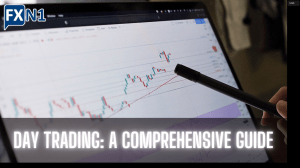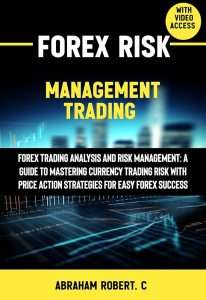A Comprehensive Guide to Online Forex Trading
Unlock the secrets of forex trading! Learn strategies to navigate the global currency market and potentially achieve financial freedom. Master risk management and build your trading empire. Conquer Forex today!

Forex trading‚ or foreign exchange trading‚ has become increasingly accessible in the digital age․ Online platforms offer individuals the opportunity to participate in the global currency market‚ potentially generating substantial profits․ However‚ it’s crucial to approach forex trading with a thorough understanding of its complexities and inherent risks․ Success in this dynamic market requires careful planning‚ diligent research‚ and a commitment to continuous learning․ This comprehensive guide will delve into the essential aspects of online forex trading‚ equipping you with the knowledge you need to make informed decisions․
Understanding the Forex Market
The foreign exchange market (forex or FX) is a decentralized global marketplace where currencies are traded․ Unlike stock exchanges with centralized locations‚ forex operates 24 hours a day‚ five days a week‚ across various global financial centers․ This constant activity creates a highly liquid market‚ offering significant opportunities for traders․ However‚ this liquidity also contributes to its volatility‚ making risk management paramount․ The market’s size and global reach influence its susceptibility to various economic and geopolitical factors․
Major Currency Pairs
Forex trading primarily involves exchanging currency pairs․ These pairs are typically represented by a three-letter abbreviation‚ such as EUR/USD (Euro/US Dollar) or GBP/USD (British Pound/US Dollar)․ The first currency in the pair is called the base currency‚ while the second is the quote currency․ The exchange rate indicates how much of the quote currency is needed to buy one unit of the base currency․ Understanding these pairs and their dynamics is fundamental to successful forex trading․
Factors Influencing Forex Rates
Numerous factors influence forex rates‚ creating a complex interplay of economic and political forces․ Interest rate differentials between countries often play a significant role․ Higher interest rates tend to attract foreign investment‚ increasing demand for that currency and strengthening its value․ Economic data releases‚ such as inflation figures and employment reports‚ can also significantly impact currency values․ Geopolitical events‚ including political instability or international conflicts‚ can cause substantial market fluctuations․ Analyzing these factors is crucial for effective trading strategies․
Choosing a Forex Broker
Selecting a reputable forex broker is paramount for a successful trading experience․ Not all brokers are created equal‚ and choosing the wrong one can lead to significant losses or even fraud․ Look for brokers regulated by reputable financial authorities‚ ensuring they adhere to strict standards of conduct and financial security․ Consider factors such as trading platform functionality‚ spreads (the difference between the bid and ask price)‚ customer support responsiveness‚ and the availability of educational resources․
Key Features to Consider
- Regulation and Licensing: Ensure the broker is licensed and regulated by a recognized authority․
- Trading Platform: Choose a user-friendly platform with advanced charting tools and analytical capabilities․
- Spreads and Commissions: Compare spreads and commissions to find competitive rates․
- Customer Support: Evaluate the quality and responsiveness of customer support services․
- Educational Resources: Access to educational materials can significantly enhance your trading knowledge․
Developing a Trading Strategy
A well-defined trading strategy is essential for consistent profitability in forex trading․ This strategy should outline your trading goals‚ risk tolerance‚ and preferred trading style (scalping‚ day trading‚ swing trading‚ or long-term investing)․ It should also include specific entry and exit rules‚ based on technical and/or fundamental analysis․ Without a clear strategy‚ trading decisions become impulsive and prone to emotional biases․
Technical Analysis
Technical analysis involves using charts and indicators to identify trading opportunities․ Traders utilize various tools such as moving averages‚ relative strength index (RSI)‚ and candlestick patterns to predict future price movements․ This method focuses on historical price data and market trends‚ rather than fundamental economic factors․ Mastering technical analysis requires practice and a deep understanding of chart patterns and indicators․
Fundamental Analysis
Fundamental analysis focuses on evaluating economic and political factors that influence currency values․ Traders analyze economic data‚ geopolitical events‚ and central bank policies to identify potential trading opportunities․ This approach is often used for longer-term trading strategies‚ as fundamental factors can take time to impact currency prices․ A strong understanding of macroeconomics and global events is crucial for fundamental analysis․
Risk Management in Forex Trading
Risk management is crucial in forex trading‚ as losses can be substantial if not properly managed․ Never invest more than you can afford to lose․ Use stop-loss orders to limit potential losses on individual trades․ Diversify your portfolio across different currency pairs to reduce overall risk․ Regularly review your trading performance and adjust your strategy accordingly․ Emotional discipline is paramount; avoid impulsive decisions driven by fear or greed․
Utilizing Stop-Loss Orders
Stop-loss orders automatically close a trade when the price reaches a predetermined level‚ minimizing potential losses․ Setting appropriate stop-loss orders is a crucial aspect of risk management‚ protecting your capital from significant drawdowns․ However‚ it’s important to note that stop-loss orders don’t guarantee the elimination of all losses‚ especially in highly volatile market conditions․
Position Sizing and Portfolio Diversification
Position sizing refers to determining the appropriate amount of capital to allocate to each trade․ Avoid over-leveraging‚ which can magnify both profits and losses․ Diversifying your portfolio across various currency pairs helps to mitigate risk‚ as losses in one pair might be offset by gains in another․ This strategy reduces the impact of any single trade’s outcome on your overall portfolio․
Staying Informed and Continuous Learning
The forex market is constantly evolving‚ influenced by economic‚ political‚ and technological changes․ Staying informed about current events and market trends is essential for successful trading․ Follow reputable financial news sources‚ read market analysis reports‚ and engage with the trading community․ Continuous learning is crucial; continually expand your knowledge and skills through online courses‚ webinars‚ and books․ The more you learn‚ the better equipped you will be to navigate the complexities of this dynamic market․
Resources for Continued Education
- Financial News Websites: Stay updated on global economic events and market trends․
- Online Forex Courses: Enhance your trading skills through structured learning programs․
- Trading Forums and Communities: Engage with other traders to share knowledge and insights․
- Books and Articles: Explore a vast library of resources on forex trading strategies and techniques․
Forex trading online presents both significant opportunities and substantial risks․ Success requires a well-defined trading strategy‚ diligent risk management‚ and a commitment to continuous learning․ By understanding the market dynamics‚ choosing a reputable broker‚ and developing a disciplined approach‚ you can increase your chances of achieving your financial goals; However‚ remember that losses are an inherent part of trading; learn from your mistakes and adapt your strategies accordingly․ Consistent effort‚ coupled with a thorough understanding of the market‚ is the key to navigating the complexities of online forex trading and achieving long-term success․ Remember that professional advice should always be sought before making any significant financial decisions․ Never underestimate the importance of thorough research and careful planning․ The forex market demands vigilance‚ patience‚ and a commitment to continuous improvement․







